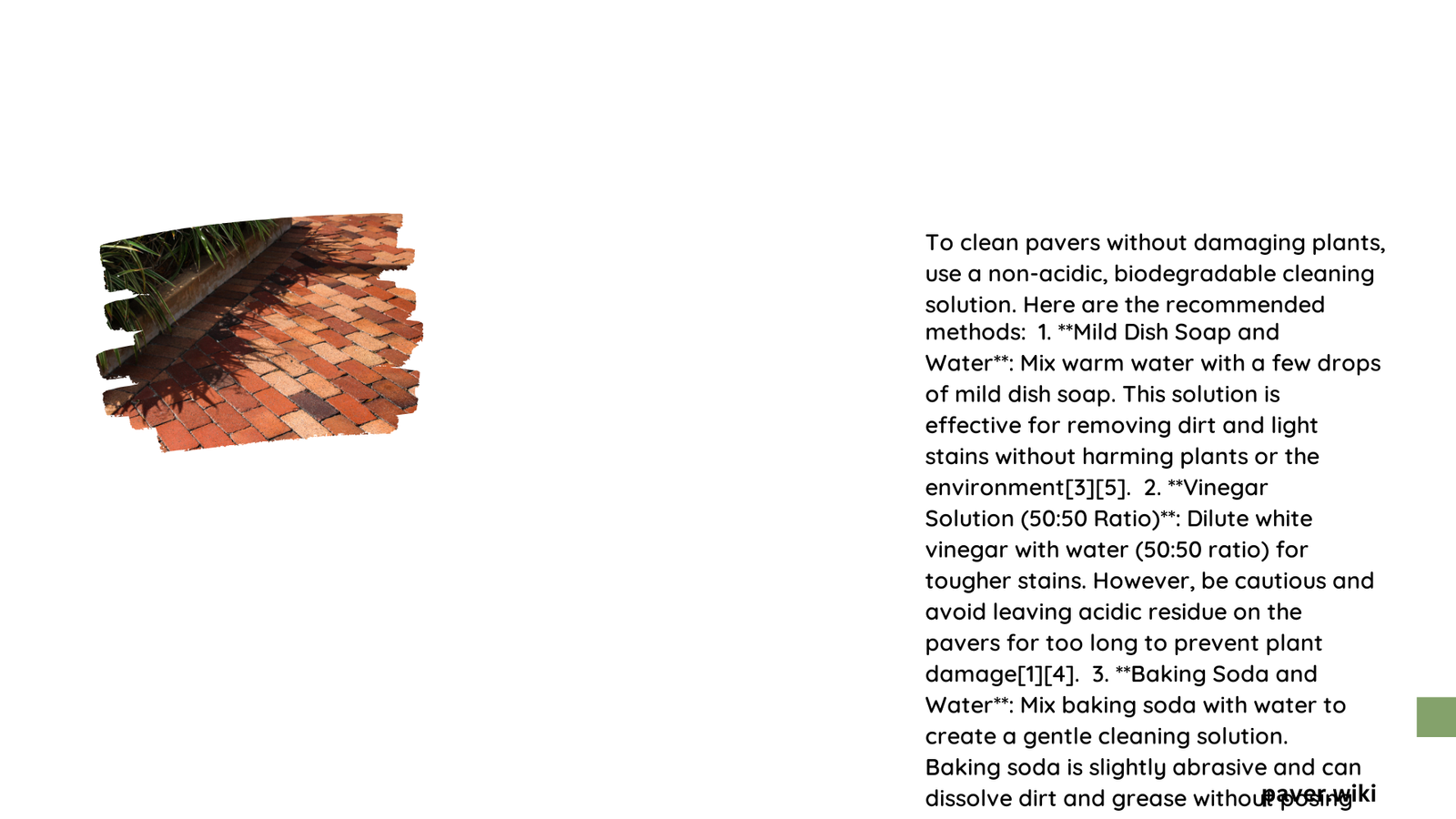Maintaining clean pavers without risking damage to nearby plants requires careful selection of cleaning methods. Homeowners and garden enthusiasts often struggle to find effective cleaning solutions that protect both their hardscaping and landscaping. This comprehensive guide explores natural, biodegradable cleaning techniques that safely remove dirt, stains, and grime from pavers while preserving the delicate ecosystem of surrounding plants.
Why Are Safe Paver Cleaning Methods Important?
Pavers are essential landscape features that can accumulate dirt, moss, and stains over time. Traditional chemical cleaners often pose significant risks to adjacent plants, potentially causing:
- Chemical burns to plant roots
- Soil pH disruption
- Toxic runoff affecting plant health
- Long-term environmental damage
Natural Cleaning Solutions Comparison
| Cleaning Solution | Effectiveness | Plant Safety | Cost | Ease of Use |
|---|---|---|---|---|
| White Vinegar | High | Very Safe | Low | Easy |
| Baking Soda | Moderate | Extremely Safe | Low | Easy |
| Biodegradable Detergent Mix | High | Safe | Moderate | Moderate |
What Makes White Vinegar an Excellent Paver Cleaner?

White vinegar offers multiple advantages for paver maintenance:
- Natural Acidic Properties
- Breaks down dirt and grime effectively
- Kills surface-level moss and weeds
-
Non-toxic to surrounding plants
-
Preparation Method
- Mix equal parts white vinegar and water
- Use a spray bottle or bucket for application
- Allow 15-30 minutes of contact time for tough stains
How Can Baking Soda Clean Pavers Safely?
Baking soda provides a gentle yet effective cleaning alternative:
- Creates a mild abrasive paste
- Neutralizes odors
- Environmentally friendly
- Minimal risk to plant life
Baking Soda Cleaning Process
- Create a paste with water
- Apply directly to paver surfaces
- Let sit for 30 minutes
- Scrub with a stiff brush
- Rinse thoroughly with clean water
What Precautions Should You Take?
When cleaning pavers near plants, consider these protective strategies:
- Cover nearby plants with plastic sheeting
- Work during mild weather conditions
- Rinse thoroughly after cleaning
- Test solutions on small areas first
- Use biodegradable tools and materials
Are Pressure Washers Safe for Plant-Adjacent Cleaning?
Pressure washers can be effective when used carefully:
- Use lowest pressure setting
- Maintain distance from plants
- Avoid direct plant contact
- Use plain water for best plant safety
What Additional Tips Ensure Plant Protection?
- Clean during plant’s dormant season
- Water surrounding soil before and after cleaning
- Use natural, biodegradable cleaning agents
- Minimize chemical runoff
- Monitor plant health post-cleaning
Expert Recommendations
- Always prioritize plant health
- Choose environmentally friendly solutions
- Perform periodic gentle maintenance
- Avoid harsh chemical treatments
Recommended Cleaning Frequency
| Paver Location | Cleaning Frequency |
|---|---|
| High Traffic Areas | Every 3-4 months |
| Shaded Areas | Every 6 months |
| Low Traffic Zones | Annually |
By following these guidelines, you can maintain pristine pavers while protecting your valuable plant life. Natural, gentle cleaning methods ensure both hardscaping and landscaping remain healthy and attractive.
